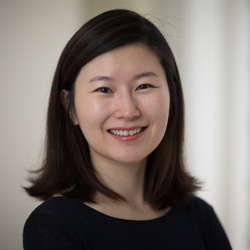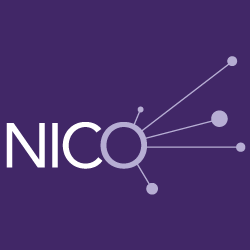Events
Past Event
WED@NICO SEMINAR: Hyejin Youn, Kellogg School "Nested Skills in Labor Ecosystems: A Hidden Dimension of Human Capital"
Northwestern Institute on Complex Systems (NICO)
12:00 PM
//
Lower Level, Chambers Hall
Details

Speaker:
Hyejin Youn, Associate Professor, Kellogg School of Management, Northwestern University
Title:
Nested Skills in Labor Ecosystems: A Hidden Dimension of Human Capital
Abstract:
Modern economies, characterized by their vast output of goods and services, operate through globally interconnected networks. As economies become more complex, so do these networks, coordinating increasingly diverse portfolios of specialized efforts and knowledge. In this study, we analyze U.S. survey data (2005–2019) to infer an underlying interdependency tree within the fabric of skill portfolios. Hierarchically constructed, this skill tree starts from widely needed, foundational abilities, constituting the root, and extends to highly specialized, niche skills required by select jobs at the extremities. The directionality is defined by the asymmetrical conditional probabilities of the presence of one skill given the existence of another. Examining 70 million job transitions in resumes and national surveys, we observe that individuals tend to delve deeper into these nested specialization paths as they ascend the career ladder to enjoy higher wage premiums. Nevertheless, the role of foundational skills for such ascent remains pivotal; without reinforcing them, the anticipated wage premiums may vanish. Hence, we further differentiate nested skills from others, with the former building on common prerequisites while the latter does not, and analyze disparities in these skill gaps across different geographic locations, genders, and racial/ethnic groups, observing how these variations in absorptive capacity impact wage premiums. Our analysis reveals a growing and concerning fragmentation in the divide between these two skill groups over the past two decades, suggesting further polarization within the job landscape. Our findings highlight the critical role of robust foundational skills as a stepping stone to specialization and the economic advantages it can confer, reinforcing the need for balanced skill development strategies in complex economies.
Speaker Bio:
Hyejin Youn is an Associate Professor at the Kellogg School of Management, and a core faculty at NICO, the Northwestern Institute on Complex Systems. Her research interests are to understand the interplay between technological innovation and socio-economic systems (urbanization, economic diversity and specialization, invention activity, future of work). Her goal is to develop a theoretical, yet empirically grounded, framework that will enable us to turn the increasing volumes of data into scientific insights and well-designed policies, an approach known as computational social science. The mathematical tools and computational methods that are used include scaling theory, spatial analysis (including percolation theory, information theory and fractal dimension analysis), statistics, and network theory.
Location:
In person: Chambers Hall, 600 Foster Street, Lower Level
Remote option: https://northwestern.zoom.us/j/97614034362
Passcode: NICO2024
About the Speaker Series:
Wednesdays@NICO is a vibrant weekly seminar series focusing broadly on the topics of complex systems and data science. It brings together attendees ranging from graduate students to senior faculty who span all of the schools across Northwestern, from applied math to sociology to biology and every discipline in-between. Please visit: https://bit.ly/WedatNICO for information on future speakers.
Time
Wednesday, March 13, 2024 at 12:00 PM - 1:00 PM
Location
Lower Level, Chambers Hall Map
Contact
Calendar
Northwestern Institute on Complex Systems (NICO)
Winter classes begin
University Academic Calendar
All Day
Details
Winter classes begin
Time
Monday, January 5, 2026
Contact
Calendar
University Academic Calendar
WED@NICO Winter Seminar Series returns on January 28th!
Northwestern Institute on Complex Systems (NICO)
12:00 PM
//
Lower Level, Chambers Hall
Details

The Wednesdsays@NICO speaker series will return for the winter quarter on January 28th, 2026, running through March 4th. Speakers will be announced in January!
Location:
In person: Chambers Hall, 600 Foster Street, Lower Level
Remote option: Zoom links will be provided
About the Speaker Series:
Wednesdays@NICO is a vibrant weekly seminar series focusing broadly on the topics of complex systems, data science and network science. It brings together attendees ranging from graduate students to senior faculty who span all of the schools across Northwestern, from applied math to sociology to biology and every discipline in-between. Please visit: https://bit.ly/WedatNICO for information on future speakers.
Time
Wednesday, January 28, 2026 at 12:00 PM - 1:00 PM
Location
Lower Level, Chambers Hall Map
Contact
Calendar
Northwestern Institute on Complex Systems (NICO)

